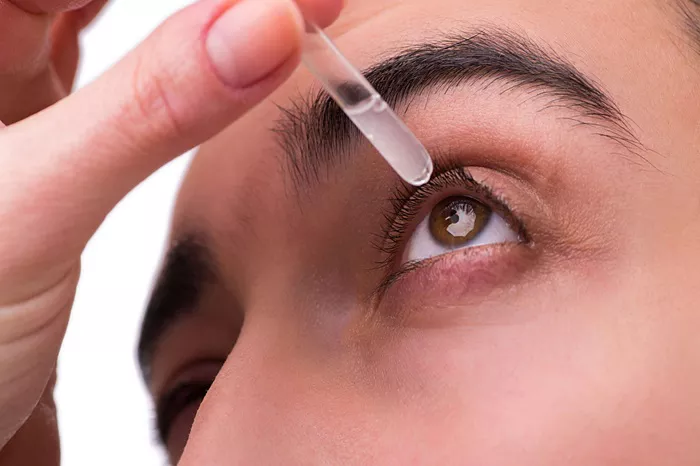Seasonal allergies, also known as allergic rhinitis, affect millions of people worldwide. Among the various symptoms, itchy eyes are particularly common and bothersome. Itchy eyes can result from a variety of allergens, including pollen, pet dander, dust mites, and mold. Managing this symptom effectively requires a comprehensive understanding of the available treatments and their efficacy. This article delves into the best medications for itchy eyes caused by allergies, exploring over-the-counter options, prescription medications, and natural remedies.
Understanding Itchy Eyes and Allergies
Itchy eyes, medically termed ocular pruritus, often accompany other allergic symptoms such as sneezing, nasal congestion, and a runny nose. This discomfort results from the body’s immune response to allergens, which prompts the release of histamines. These histamines cause inflammation, itching, and redness in the eyes. The goal of allergy medications is to counteract these effects, providing relief and improving quality of life.
Over-the-Counter (OTC) Medications
Antihistamine Eye Drops
Antihistamine eye drops are among the most effective OTC options for relieving itchy eyes. These drops contain agents that block the action of histamines, thus reducing itching and redness. Popular antihistamine eye drops include:
Ketotifen (Zaditor, Alaway): Ketotifen is a mast cell stabilizer and antihistamine that provides long-lasting relief, often up to 12 hours per dose. It is safe for adults and children over the age of three.
Naphazoline/Pheniramine (Naphcon-A, Visine-A): These combination drops provide both antihistamine and decongestant effects, reducing both itchiness and redness. However, prolonged use can lead to rebound redness, so they are best for short-term use.
Decongestant Eye Drops
Decongestant eye drops reduce redness by constricting blood vessels in the eyes. While they can make eyes appear less red, they do not address the underlying allergic reaction. Overuse can lead to rebound hyperemia, where redness worsens upon discontinuation. Examples include:
Tetrahydrozoline (Visine Red Eye): Tetrahydrozoline is effective for reducing redness but should be used sparingly due to the risk of rebound effects.
Lubricating Eye Drops (Artificial Tears)
Artificial tears can provide temporary relief by washing away allergens and soothing the eye surface. They do not contain active ingredients to combat allergies directly but can help alleviate dryness and irritation. Popular brands include:
Refresh, Systane, TheraTears: These products are available in various formulations, including preservative-free options for those with sensitive eyes.
Prescription Medications
For individuals with severe or persistent symptoms, prescription medications may be necessary. These options typically offer stronger and longer-lasting relief compared to OTC medications.
Prescription Antihistamine Eye Drops
Prescription antihistamine eye drops are similar to their OTC counterparts but often have higher concentrations of active ingredients for more effective relief. Examples include:
Olopatadine (Patanol, Pataday, Pazeo): Olopatadine is a popular prescription antihistamine that provides quick and long-lasting relief. It is generally well-tolerated and can be used once or twice daily, depending on the formulation.
Mast Cell Stabilizers
Mast cell stabilizers prevent the release of histamines and other inflammatory mediators from mast cells. They are effective for long-term management but may take several days to start working. Examples include:
Cromolyn Sodium (Crolom): Cromolyn sodium is used to prevent allergic reactions in the eyes. It is particularly useful for chronic allergic conjunctivitis but requires regular use.
Combination Medications
Some prescription eye drops combine antihistamines with mast cell stabilizers to provide immediate and long-term relief. Examples include:
Azelastine/Fluticasone (Dymista): This combination provides both antihistamine and anti-inflammatory effects, making it suitable for severe allergic reactions.
Oral Antihistamines
In cases where eye drops alone are insufficient, oral antihistamines can be used. They help alleviate systemic allergic symptoms, including itchy eyes. Common oral antihistamines include:
Cetirizine (Zyrtec), Loratadine (Claritin), Fexofenadine (Allegra): These second-generation antihistamines are preferred due to their non-sedating properties. They provide 24-hour relief with minimal side effects.
Corticosteroid Eye Drops
For severe allergic conjunctivitis that does not respond to other treatments, corticosteroid eye drops may be prescribed. These drops reduce inflammation effectively but are generally used for short durations due to potential side effects like increased intraocular pressure and cataract formation. Examples include:
Prednisolone (Pred Forte), Loteprednol (Lotemax): These potent anti-inflammatory agents should be used under strict medical supervision.
Natural and Alternative Remedies
In addition to conventional medications, some individuals seek natural and alternative remedies for managing itchy eyes. While these options may provide relief, it is essential to approach them with caution and consult a healthcare provider before use.
Cold Compresses
Applying a cold compress to closed eyes can reduce itching and inflammation. This method is simple, inexpensive, and free of side effects. It provides temporary relief and can be repeated as needed.
Saline Eye Wash
Rinsing the eyes with a saline solution helps flush out allergens and soothe irritation. Over-the-counter saline eye washes are available, or one can make a simple saline solution at home using distilled water and non-iodized salt.
Herbal Remedies
Certain herbs have anti-inflammatory and antihistamine properties that may help reduce allergic symptoms. These include:
Chamomile: Chamomile tea bags, once cooled, can be placed over the eyes as a compress. Chamomile has anti-inflammatory properties that may soothe irritated eyes.
Eyebright (Euphrasia officinalis): Eyebright is used traditionally for eye conditions. It can be found in eye drops or taken as an oral supplement, but evidence of its effectiveness is anecdotal and should be discussed with a healthcare provider.
Omega-3 Fatty Acids
Omega-3 fatty acids, found in fish oil and flaxseed oil, have anti-inflammatory properties that may help reduce allergic reactions. Supplements or a diet rich in omega-3s can support overall eye health.
Lifestyle Modifications and Prevention
Preventing exposure to allergens is a crucial step in managing itchy eyes. Here are some practical tips:
Environmental Control
Keep Windows Closed: During high pollen seasons, keep windows closed to prevent pollen from entering the home.
Use Air Purifiers: High-efficiency particulate air (HEPA) filters can reduce indoor allergens.
Clean Regularly: Regular cleaning reduces dust, pet dander, and mold in the home. Use a vacuum with a HEPA filter and wash bedding frequently.
Shower After Outdoor Activities: Showering and changing clothes after being outside can remove pollen and other allergens from the body and hair.
Personal Habits
Avoid Rubbing Eyes: Rubbing can exacerbate irritation and introduce more allergens to the eyes.
Use Sunglasses: Wearing sunglasses outdoors can protect eyes from pollen and other airborne allergens.
Maintain a Healthy Diet: A diet rich in fruits, vegetables, and omega-3 fatty acids can support the immune system and reduce inflammation.
Conclusion
Itchy eyes caused by allergies can significantly impact daily life, but a variety of effective treatments are available. Over-the-counter medications, such as antihistamine and lubricating eye drops, provide convenient relief for mild to moderate symptoms. Prescription medications, including stronger antihistamines, mast cell stabilizers, and corticosteroids, are essential for more severe cases. Natural remedies and lifestyle modifications can also play a supportive role in managing symptoms and preventing exposure to allergens.
Individuals suffering from itchy eyes should consult with a healthcare provider to determine the most appropriate treatment plan. This personalized approach ensures optimal relief and minimizes the risk of side effects, leading to better management of allergic symptoms and an improved quality of life.
[inline_related_posts title=”You Might Be Interested In” title_align=”left” style=”list” number=”6″ align=”none” ids=”9145,9081,9077″ by=”categories” orderby=”rand” order=”DESC” hide_thumb=”no” thumb_right=”no” views=”no” date=”yes” grid_columns=”2″ post_type=”” tax=””]
































